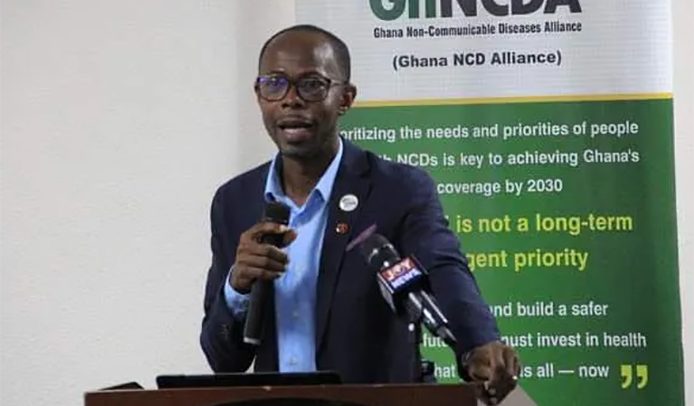Labram M. Musah
The Vision for Accelerated Sustainable Development, the Non-communicable Disease (NCD) Alliance, and the Stroke Association Support Network (SASN), have partnered in the celebration of World Stroke Day.
The theme for this year’s celebration is “Stroke: Know the Risks, Act Fast”, and emphasises the need for education, prevention and timely action to minimise the number of people who are affected annually.
In a release signed by the Executive Director of Vision for Accelerated Sustainable Development, Ghana, Labram M. Musah, it noted that many Ghanaians are still unaware of the risk factors such as hypertension, diabetes, unhealthy lifestyle choices, and the early warning sign of this disease.
According to the release, the past three decades have seen a steady rise in stroke cases.
The release further stated that the numbers are expected to go even higher as the years wear on, resulting in about 9.7 million deaths per annum by 2050.
According to the World Stroke Organisation, stroke is projected to cost the global economy over USD 1.6 trillion annually by 2050.
The Ghana Health Service (GHS) data shows that stroke accounts for approximately 15% of hospital admissions and 16% of deaths annually in the country, with increasing incidents among young adults.
The release noted that access to healthcare services such as emergency care is inadequate especially in rural areas, coupled with the stigma of being a stroke patient prevents people from seeking needed help when the unfortunate happens.
Public health initiatives promoting healthier lifestyles and routine health screenings are essential for prevention, as well as establishing comprehensive rehabilitation programmes focused on physical, occupational, and speech therapy, the release stated.
Executive Director, Stroke Association Support Network, Ad Adams Ebenezer, is quoted to have said, “Demanding action on the part of government to make rehabilitation accessible and affordable for persons living with stroke is essential to reducing the out-of-pocket payments when seeking care.”
He went on to advise Ghanaians to live a healthy lifestyle, all the while raising awareness, and advocating for better healthcare provisions for stroke patients.
By Vera Owusu Sarpong


